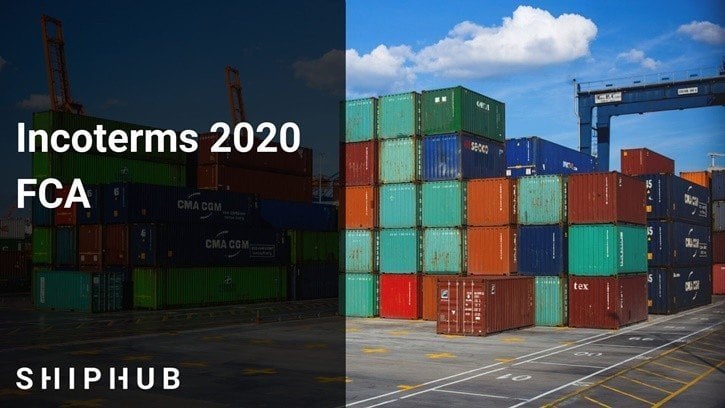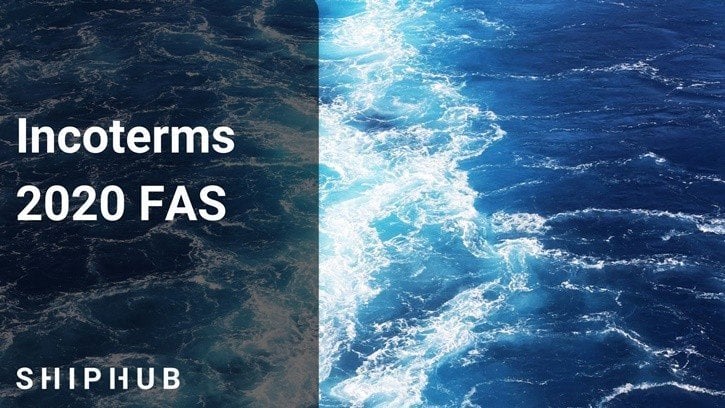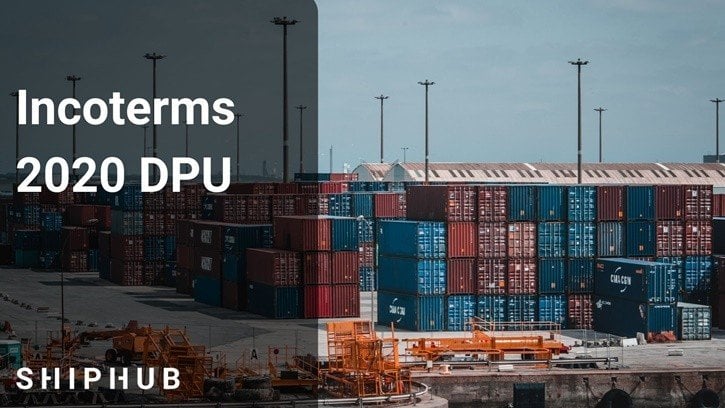Regulations of sharing cost and risk between the seller and the buyer regulate Incoterms rules. It turns out that the most commonly used is FCA Incoterms. Almost 40% of contracts all over the world are concluded based on this rule. FCA is comprehensive because it applies to all modes of transport.
Cost-sharing – Incoterms 2020 FCA
| The seller takes the costs: | The buyer takes the costs: |
| The costs of export clearance, | The costs related to import issues and transport of goods from the moment of delivery to the courier by the seller, |
| The costs of delivering and entrusting the goods to a carrier, | Additional costs related to non-compliance with the obligation to take delivery of the goods at the place and time agreed in the contract, |
| The costs of obtaining an export license or other authorization, taxes, duties and additional official export charges, | The costs of obtaining documents or equivalent in electronic form (other than usual delivery notes) issued in the country of consignment and/or origin which are necessary for the buyer to import or transit the goods, |
| Costs in case of a ban on the export of the products or costs if there are special taxes on its export, | Costs of informing the seller about the date and place where the goods will be delivered to the carrier, |
| The costs of providing the document proving the delivery of the goods or equivalent electronic version, | Costs related to the transport of the products, |
| Costs of preparing and sending the commercial invoice or equivalent electronic version, | Costs of unloading the delivered goods from the means of transportation in the terminal of the carrier designated by the buyer, |
| Costs of informing the buyer that the goods have been delivered and entrusted to the carrier or have not been accepted by the carrier at the agreed time, | All costs relating to the products from the time they are put at the disposal of the carrier designated by the buyer (including customs duties and taxes and other official charges), |
| The costs of packaging and marking required for transport, unless the goods are generally transported without packaging, | All additional costs resulting from not designating a carrier or notifying the seller of the name of the carrier and the designated date when the goods are to be delivered to the carrier, |
| The costs of quality control, measurement, weighing, and counting. | The costs of pre-shipment inspection of the goods, unless the authorities compulsorily require this of the exporting country. |
What are the obligations of the seller?
- The seller has to provide the goods, the commercial invoice and other evidence of conformity as may be required and specified in the contract,
- Upon request and at the buyer’s expense, the seller enables and assists in obtaining a shipping document,
- Appoints a person responsible for loading the goods to the vehicle of the purchaser of the products,
- The seller is responsible for preparing the goods for loading (measurement and packing of the goods),
- He adjusts the goods for export and bears the risks and costs involved,
- At the request of the buyer, he may conclude a contract of carriage on normal terms and conditions at the cost and risk of the buyer.
What are the obligations of the buyer?
- The buyer completes the formalities related to the import of goods and their transport from the moment of delivery by the seller to the courier,
- He bears the risk of losing or damaging the products from the moment of delivery to the courier,
- It concludes transport contracts, although the seller may (as an additional service) arrange transport at the expense and risk of the buyer,
- He takes care of all necessary transit formalities and preparing the goods to import,
- The buyer orders transport,
- He takes delivery of the goods at the place agreed upon in the contract in advance.
Delivery of goods
The Incoterms 2020 FCA has two possible delivery locations. A first variant is a place belonging to the seller (e. g. his warehouse, factory). The delivery is deemed have been completed when the goods are physically handed over (after the loading has been completed) to a courier or other person designated by the buyer.
The second option concerns the place, which does not belong to the seller (e. g. seaport, terminal). In such a case, the delivery is deemed to have taken place after the goods have been handed over to the carrier in the mode of transport sent by the seller. It should be noted that the unloading of products from the mode of transportation is not the responsibility of the seller.
Regardless of the chosen option, information about the place, and time of delivery should be included in the contract.
Insurance of the goods on Incoterms 2020 FCA
In the case of FCA Incoterms, insurance is the responsibility of the buyer. The seller is not responsible for the products from the moment of delivery at the place specified in the contract. The further transport, as well as the insurance of the goods, depends on the buyer.
Incoterms 2020 FCA
The FCA formula can be applied to all modes of transport, including combined transport (where different modes of transport are used).
The seller must deliver the goods and commercial invoice in accordance with the sales contract and any other evidence of conformity that may be required in the contract. Besides, he assists in obtaining the transport document at his own expense and risk,
However, this is optional and unnecessary if the seller and the buyer agree that the seller will provide a waybill stating that the goods have been delivered for dispatch and that they have not been sent on board.
FCA and other Incoterms rules
In the case of the FCA rule, as with all other Incoterms 2010 rules (except EXW), the seller is charged with all procedures related to the export of goods.
At both EXW and FCA, the importer has a transport authority for the entire delivery route. In EXW rule the seller is not obliged to load the goods or clear the goods for export. In the FCA Incoterms, the obligation of export clearance is on the seller. The obligation of loading depends on the mode of transport. For this reason, it is recommended to use the FCA instead of EXW.





